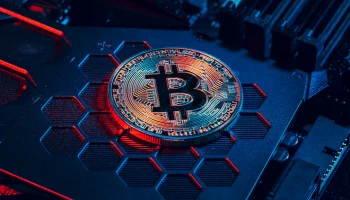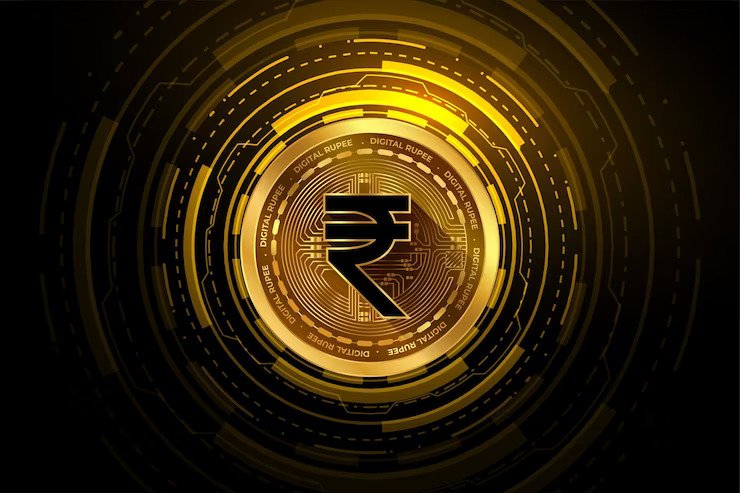In the vast landscape of digital currencies, one name has emerged as a pioneer, capturing the imagination and reshaping the financial world as we know it. That is Bitcoin. Right from when the currency was created in 2009, it has continued to grow until it became the leading cryptocurrency, captivating the attention of everyone, including investors, tech enthusiasts, and economists.
But what makes Bitcoin so unique? Have you also heard it referred to as “digital gold”? Then why? This article will help you get answers to all these questions. It will shed light on the significance of Bitcoin and the reasons behind its comparison to the coveted precious metal.
What is Bitcoin?
Bitcoin, at its core, represents a groundbreaking innovation that revolutionizes traditional systems of finance. It operates on a decentralized network known as the blockchain, which ensures transparency, security, and immutability for every transaction.
Unlike traditional currencies, Bitcoin is not regulated or issued by any central authority – whether a financial institution or government. This characteristic, combined with its finite supply, gives Bitcoin a distinct advantage over traditional forms of money.
The Genesis of Bitcoin
During the time of the global financial crisis of 2008, a pseudonymous individual or group referred to as Satoshi Nakamoto introduced the world to Bitcoin, a groundbreaking concept that will revolutionize the world of finance.
Released in January 2009, the first block of the Bitcoin blockchain was released. And that marked the birth of this revolutionary technology. The block was called the “genesis block.” It was within this genesis block that Nakamoto embedded a message referencing a headline from The Times newspaper: “The Times 03/Jan/2009 Chancellor on brink of second bailout for banks.”
This act not only showcased dissatisfaction with the existing financial system but also emphasized the aim of creating an alternative, independent form of money.
Bitcoin was designed to address key challenges associated with traditional currencies and financial systems. It has its underlying technology the blockchain. Every transaction made with Bitcoin is recorded on the blockchain. And that makes it virtually impossible to alter or manipulate the transaction history.
To facilitate the functioning of the network, Bitcoin introduced the process of mining. Miners, using powerful computers, compete to solve complex mathematical puzzles, validating and recording transactions on the blockchain. As a reward for their efforts, miners are awarded newly minted Bitcoins, creating an incentive system that helps secure the network and maintain transaction integrity.
Bitcoin As Digital Gold
The moniker “digital gold” has been bestowed upon Bitcoin due to its striking resemblance to the precious metal in various aspects. Just as gold has been valued for centuries for its scarcity, durability, and portability, Bitcoin exhibits similar qualities.
It is created through mining. However, Bitcoin has a cap for the total number that can be in circulation. Its total supply must not exceed 21 million coins, making it a limited resource, much like gold. This scarcity is seen as a crucial factor in its potential for long-term value appreciation.
Additionally, Bitcoin shares another characteristic with gold that further enhances its reputation as digital gold: its ability to serve as a store of value. In History, gold was known to be a safe-haven asset during times of economic uncertainty. It has proven to preserve wealth and provide a hedge against inflation, making it an attractive investment option.
In the same way, Bitcoin is also popularly known as a store of value in the digital realm. Bitcoin decentralization, coupled with the finite supply, has positioned it as a potential safeguard against the volatility of traditional currencies and the eroding effects of inflation.
Unique Benefits Of Bitcoin
Perhaps you have already seen some benefits of Bitcoin while reading the post so far. But in this section, we want to point them out specifically. That way, you will have a full grasp of what importance the digital currency holds, and why people are rushing to invest in Bitcoin.
Decentralization
As we said earlier, Bitcoin operates on a decentralized network. That means it is not controlled by any central authority or government. This decentralization ensures that no single entity has the power to manipulate or control the currency, hence promoting financial autonomy and resilience.
Security and Transparency
Bitcoin has all its transactions recorded on the blockchain. This provides a high level of transparency and immutability to the transactions. That way, it becomes very difficult for fraudulent activities to happen on the system. That is another way to further tighten the security and integrity of the system.
Limited Supply
Like gold, Bitcoin exhibits some level of scarcity. It has a finite supply cap set at 21 million coins. This scarcity makes it immune to inflationary pressures that affect traditional currencies, hence positioning it as a potential hedge against inflation.
Global Accessibility
You can access and transact with it from anywhere in the world without the need for intermediaries or geographic limitations. This makes Bitcoin an inclusive and borderless form of money as it enables financial inclusion and cross-border transactions.
Lower Transaction Fees
Compared to traditional payment systems, Bitcoin transactions often come with lower fees. That way, it is an attractive option for people looking to transfer funds internationally or conduct microtransactions.
Potential for High Returns
Bitcoin has exhibited significant price appreciation over the years, presenting opportunities for investors to benefit from capital appreciation.
How To Get Started With Bitcoin
Getting started with Bitcoin is relatively straightforward. Here are the key steps to begin your journey:
- Set up a Bitcoin Wallet: To store and manage your Bitcoin, you’ll need a digital wallet. Wallet options range from software wallets on your computer or smartphone to hardware wallets for enhanced security.
- Choose a Bitcoin Exchange: Select a reputable cryptocurrency exchange where you can buy, sell, and trade Bitcoin. Popular exchanges include Anycoin Direct, Coinbase, Binance, and Kraken. Ensure the exchange supports your region and offers the desired features.
- Complete the Verification Process: Most exchanges will require that you complete a verification process to comply with regulatory requirements. This typically involves providing identification documents and verifying your identity.
- Deposit Funds: Once your account is verified, deposit funds into your exchange account.
- Purchase Bitcoin: With funds in your exchange account, you can buy Bitcoin. Just specify the amount you wish to purchase and confirm the transaction. The Bitcoin will be credited to your wallet on the exchange.
- Secure Your Bitcoin: Transfer your Bitcoin from the exchange wallet to your personal wallet for added security. However, ensure you keep your wallet’s private keys or seed phrases safe and secure.
- Stay Informed and Educated: Bitcoin and the cryptocurrency market are dynamic. You will need to stay informed about market trends, security best practices, and new developments to make informed decisions and navigate the evolving landscape.
Read Also:




























